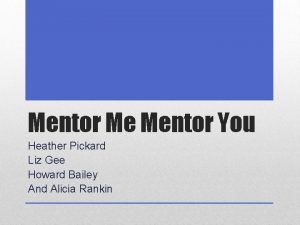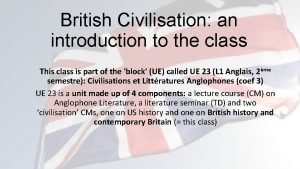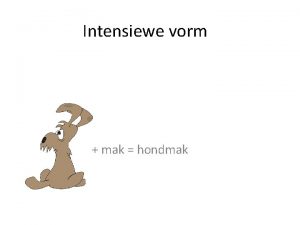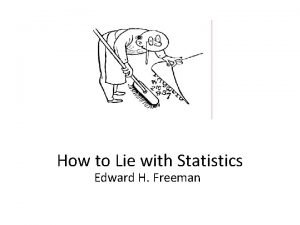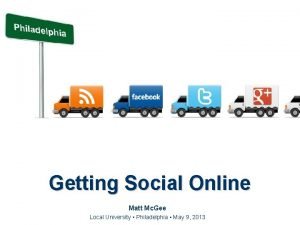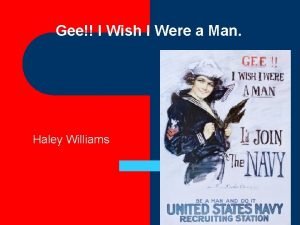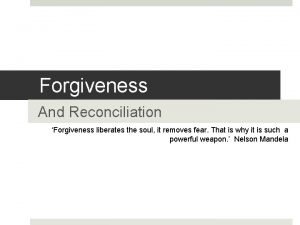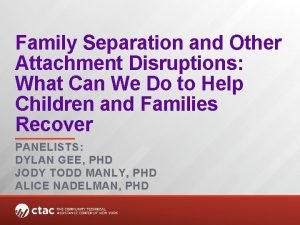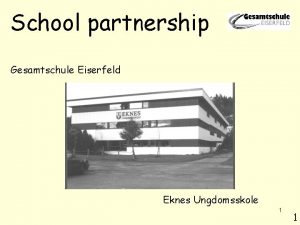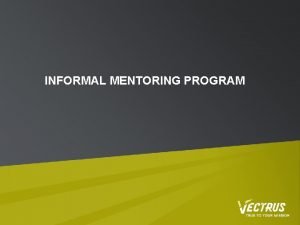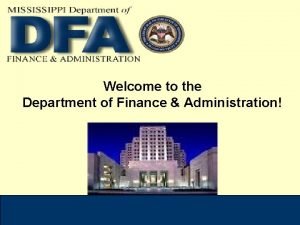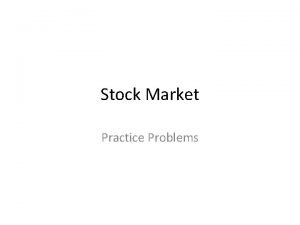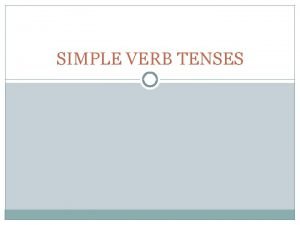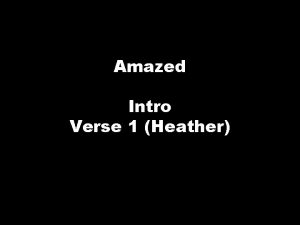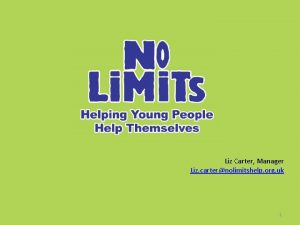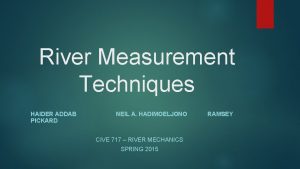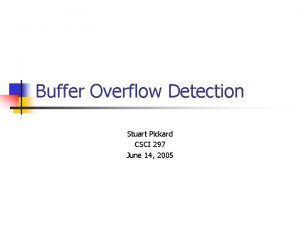Mentor Me Mentor You Heather Pickard Liz Gee

















- Slides: 17

Mentor Me - Mentor You Heather Pickard Liz Gee

What we wanted to do …. Design a peer to peer mentoring scheme as part of the scheduled extra curricular Career Planning activities. These are sessions specifically devised to enhance employability and operate in years 1 and 2.

Methodology This was a pilot project to explore the possibility of embedding such a scheme in the Career Planning scheme of work Our aim was to ensure the mentoring was: - relevant - transferrable and scale able across courses - student focused - engaging

Methodology The aim was achieved via a stepped process: - Train the tutor - Tutors recruit and then work with students to become mentors - Students operate as mentors - Mentees become mentors - Ongoing process

- What we did………………… Developed a training programme and resources Hosted ‘train the trainer ‘ workshops Recruited mentors…………. How? Hosted mentoring skills training session Recruited mentees…. . How? Matched mentees with mentors…. . How? Provided mentoring supervision Hosted an evaluation workshop

Powerful questions - Your participation

Feedback - What participants said…………….

Mentor reflections: ‘the importance of developing these skills to be effective in the workplace’; ‘learning new skills and especially related to, and the importance of listening’; ‘increased confidence’ and ‘it was interesting to use using the OSCAR model to structure the approach and interaction with my mentee. ’

Further evaluations The final workshop provided an opportunity to implement a focus group method of research. The Focus Group identified the key impacts on mentors including: - the opportunity to ‘put skills into practice’, -Identification of learning skills that can be used in the workplace -recognition that the skills can be applied to a wide range of situations. -the value of adding this experience ‘on to my’ CV was highlighted. Several students indicated that having to write a reflective review after each mentoring session reminded them of the importance of this activity in their own personal development.

Strengths Weaknesses • Greater understanding of UAL processes • Integration between year groups • Crossing the mentee/ mentor boundaries • Difficult to obtain feedback • Timing + availability of mentee/mentor Key considerations Opportunities Threats • Application of theory to practice • Reinforced effectiveness of the reflective process • Pressure on the mentor to ensure the mentee succeeded • Mentees not committed

What we did…. - Created and agreed a project brief Developed training programmes and resources Hosted ‘train-the-trainer’ workshops Recruited mentors Hosted mentoring skills workshop Recruited mentees Provided mentoring supervision Hosted an evaluation workshop

- What resources we developed………. Scheme of work Session plans Learner/ mentor workbook Reading lists Worksheets Mentor- Mentee agreements Self- assessment tools

What we want you to do …. - With the person sitting next to you spend 4 -5 minutes discussing A. What is the potential for a similar programme in your area of work? and then B. What might be the challenges if you were to implement such a programme? THEN turn your conclusions into 1 or 2 key questions that you want to ask

What are your questions…. ? ? ? Q and A

- Where can I find out more? ……. Contact details: Heather Pickard h. pickard@fashion. arts. ac. uk Liz Gee l. gee@fashion. arts. ac. uk

Resources Garvey, B; Stokes, P; and Megginson D (2014) Coaching and Mentoring Theory and Practice 2 nd Edn. London: SAGE Gilbert, A and Whittleworth, K (2010). OSCAR Model of Coaching. Monmouth: Worth Consulting Ltd. Hawkins, P. (2012). Creating a coaching culture: developing a coaching strategy for you. Maidenhead: Open University Press Whiteworth, L; Kimsey-House, H; and Sandahl, P (1998) Coactive Coaching. London: Davies Black Publishing Journal of Evidence Based Coaching and Mentoring http: //www. business. brookes. ac. uk/research/areas/coachingandmentoring/ http: //www. brainmark. vn/en/the-brand-story/brainmark-consulting-and-training/the-differences -between-coaching--mentoring/141/4

Additional resources. CLUTTERBUCK, D. (2004) Everyone needs a mentor : fostering talent in your organisation. 4 th ed. London : Chartered Institute of Personnel and Development. HAWKINS, P. (2012) Creating a coaching culture: developing a coaching strategy for you. Maidenhead: Open University Press. LAMPSHIRE, J. and LEWIS, L. (2008) Coaching and mentoring. HR study, no 897. London: IDS. Chartered Institute of Personnel and Development, Coaching CIPD toolkit. London: CLUTTERBUCK, D. (2013) Teaming up for a coaching culture. Training Journal. February. pp 65 -69. DUNNETT, R. (2012) Mentoring matters. Director. Vol 65, No 6, February. pp 50 -53. MARRIS, B. (2012) Leaders - when are you coaching, mentoring or consulting? Human Resources (New Zealand). Vol 17, No 4, October/November. pp 12 -13. MURPHY, W. M. (2012) Reverse mentoring at work: fostering cross-generational learning and developing millennial leaders. Human Resource Management. Vol 51, No 4, July/August. pp 549 -574. WOLFF, C. (2012) How to deliver an employee coaching programme: the 2012 Xpert HR survey. IRS Employment Review. 7 March. , 9 pp. WOLFF, C. (2012) How to make a success of employee coaching: the 2012 Xpert HR survey. IRS Employment Review. 7 March 2012. 8 pp
 Heather pickard
Heather pickard Lbbc technologies
Lbbc technologies Alicia pickard
Alicia pickard Sarah pickard
Sarah pickard Stuart pickard
Stuart pickard Intensiewe vorm van groen
Intensiewe vorm van groen Gee whiz graph
Gee whiz graph Gee
Gee Gee i wish i were a man poster analysis
Gee i wish i were a man poster analysis Erika gee
Erika gee Forgiveness liberates the soul
Forgiveness liberates the soul Gee panelist yale
Gee panelist yale Gesamtschule eiserfeld
Gesamtschule eiserfeld Informal mentoring definition
Informal mentoring definition Department of finance and administration
Department of finance and administration June's portfolio includes 177 shares
June's portfolio includes 177 shares Good hangman phrases
Good hangman phrases Simple present verbs
Simple present verbs


